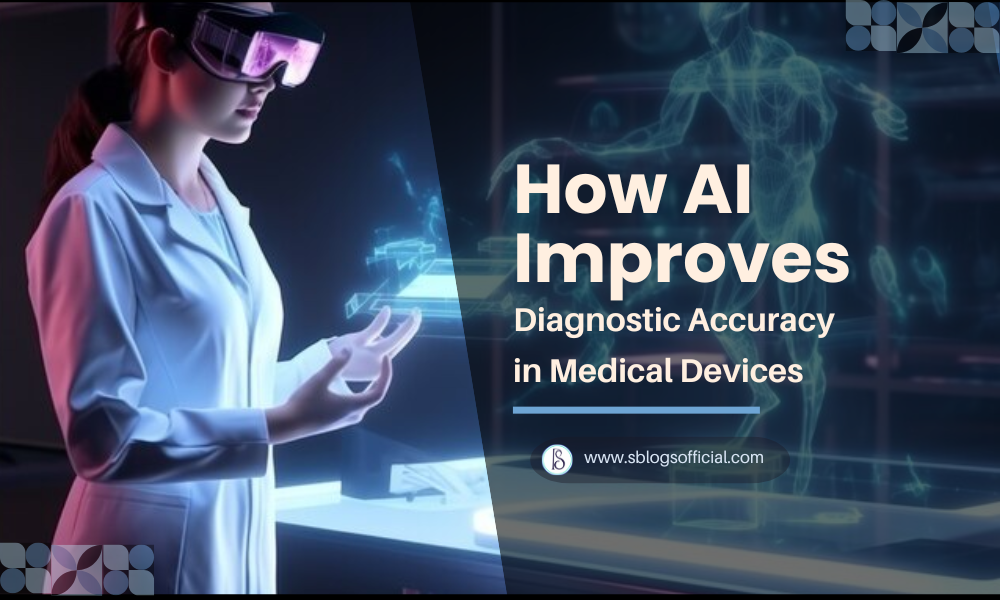
Imagine a world where doctors have a super-smart assistant who never gets tired, never misses a detail, and can spot health problems before they become serious. That’s exactly what AI is doing in healthcare today! Medical devices powered by artificial intelligence are changing the game, helping doctors diagnose diseases faster and more accurately than ever before.
Think about it like having a highly trained medical detective who can look at medical scans, test results, and patient information in ways humans simply can’t. AI doesn’t replace doctors – instead, it gives them a powerful tool to provide better, more personalized care. From catching early signs of serious illnesses to helping create treatment plans tailored to each patient, AI is making healthcare smarter, more precise, and ultimately, more human.
Types of Medical Devices
Medical devices are technological tools designed to diagnose, monitor, treat, or support medical conditions. These devices range from simple tools to complex, sophisticated systems that play crucial roles in healthcare delivery. Understanding the various types of medical devices helps us appreciate the breadth of technological innovation in medicine.
Medical devices encompass a wide range of technological tools used in healthcare, which can be broadly categorized into:
1. Diagnostic Devices
- Imaging equipment (MRI, CT scanners, X-ray machines)
- Blood analysis machines
- Electrocardiogram (ECG) devices
- Ultrasound equipment
2. Monitoring Devices
- Continuous glucose monitors
- Wearable heart rate and activity trackers
- Remote patient monitoring systems
- Vital signs monitoring equipment
3. Therapeutic Devices
- Insulin pumps
- Ventilators
- Infusion pumps
- Cardiac pacemakers
4. Surgical and Interventional Devices
- Robotic surgical systems
- Minimally invasive surgical tools
- Endoscopic equipment
- Laser surgical devices
Examples of Medical Devices
The medical device landscape is rich with innovative technologies from leading healthcare companies. These devices showcase how advanced engineering and medical science can work together to improve patient care, offering more accurate diagnostics, better monitoring, and more effective treatments.
- Medtronic Insulin Pumps
- Abbott Continuous Glucose Monitors
- GE Healthcare Ultrasound Machines
- Dexcom Glucose Monitoring Systems
- da Vinci Surgical Robotic Systems
Modern Medical Devices and Their Working Principles
Modern medical devices are sophisticated systems that integrate multiple technologies to provide comprehensive healthcare solutions. They go beyond simple measurement, utilizing complex algorithms, advanced sensors, and intelligent data processing to deliver unprecedented insights into human health.
Imaging Devices
- Utilize advanced sensor technologies
- Employ complex algorithms to capture and process images
- Use machine learning to detect anomalies
- Provide high-resolution, detailed internal body views
Monitoring Devices
- – Incorporate miniature sensors
- – Use wireless communication technologies
- – Implement real-time data processing
- – Provide continuous health parameter tracking
AI Integration Principles
- Machine learning algorithms analyse vast datasets
- Neural networks detect subtle patterns
- Predictive analytics forecast potential health risks
- Continuous learning and improvement of diagnostic accuracy
How AI Improves Diagnostic Accuracy
AI is not just an incremental improvement in medical technology but a fundamental reimagining of diagnostic processes. By leveraging massive computational power and sophisticated algorithms, AI is making medical diagnostics more precise, personalized, and proactive.
Pattern Recognition AI algorithms can:
- Detect microscopic changes invisible to human eyes
- Identify early-stage disease markers
- Compare patient data against extensive medical databases
- Provide probabilistic disease progression predictions
Reduced Human Error
- Eliminates subjective interpretation
- Provides consistent, objective analysis
- Offers standardized diagnostic protocols
- Reduces fatigue-related diagnostic mistakes
Personalized Medicine
- Tailors’ diagnostic approaches to individual patient profiles
- Considers genetic, lifestyle, and historical health data
- Predicts potential health risks with higher accuracy
- Recommends personalized preventive strategies
List of FDA-Approved AI Medical Devices in 2024
The FDA’s approval of AI medical devices represents a significant milestone in healthcare technology. These devices have undergone rigorous testing to ensure their safety, effectiveness, and potential to improve patient outcomes.
1. IDx-DR (Diabetic Retinopathy Detection)
- Autonomous AI diagnostic system
- Detects diabetic retinopathy (Ophthalmic) without human intervention
2. Arterys Imaging AI Platform
- Advanced medical imaging analysis
- Provides AI-powered cardiac and oncology imaging
3. Viz.ai Contact
- Stroke detection and notification system
- Rapidly identifies potential large vessel occlusions
4. Caption Guidance AI
- Assists in echocardiogram image acquisition
- Provides real-time guidance during cardiac ultrasounds
5. Google Health’s Mammography AI
- Breast cancer screening technology
- Improves detection accuracy in mammographic images
Conclusion
AI is transforming medical devices, making diagnostics more accurate, personalized, and efficient. As technology continues to advance, we can expect even more sophisticated AI-powered medical solutions that will revolutionize healthcare delivery. The future of medicine is not just about treating diseases, but about predicting, preventing, and personalizing healthcare in ways we are only beginning to imagine.
Sources-
